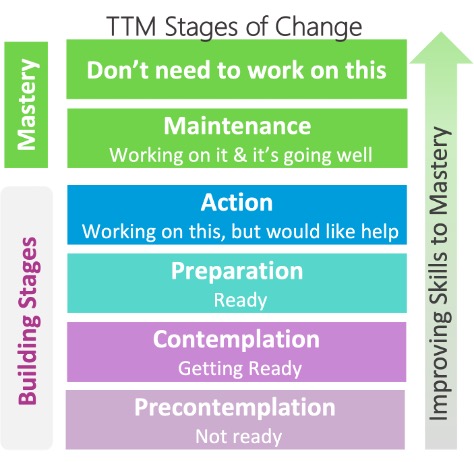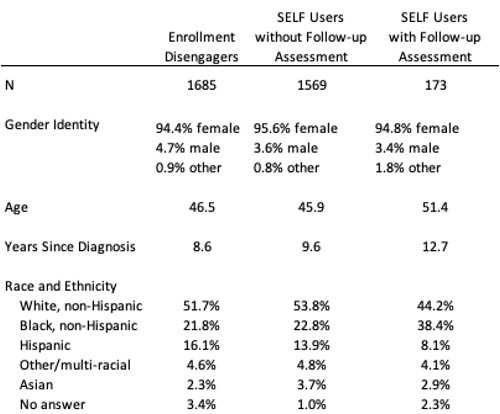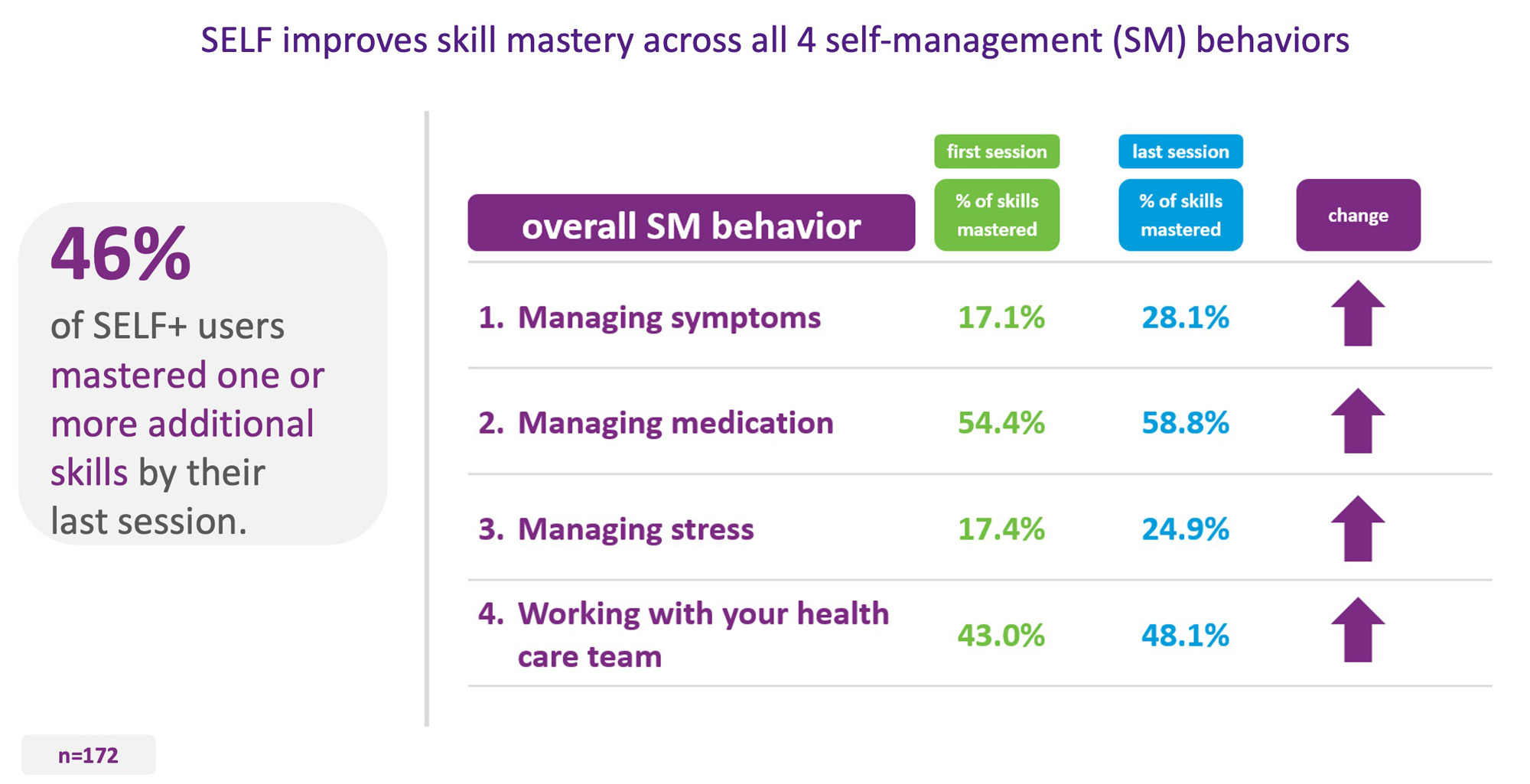Session Information
Date: Tuesday, November 14, 2023
Title: Abstracts: Patient Outcomes, Preferences, & Attitudes II: Patient Experience
Session Type: Abstract Session
Session Time: 4:00PM-5:30PM
Background/Purpose: The Lupus Foundation of America (LFA) has engaged in a 5-year cooperative agreement with the Centers for Disease Control and Prevention to implement a digital lupus self-management (SM) intervention based on the Transtheoretical Model of Change. Strategies to Embrace Living with Lupus Fearlessly (SELF) is designed to help users adopt 4 key lupus SM behaviors shown to have the highest impact on health and functional status: managing symptoms, managing stress, managing medications, and working with your healthcare team (each behavior includes 3-5 skills).
Methods: SELF offers user-tailored SM activities, symptom/medication trackers, a journal, links to LFA educators/peer support, and tailored text message tips. Onboarding and 90-day follow-up assessments collect demographics, stage of change for the 4 key SM behaviors , and patient-reported outcomes (PROs) such as measures of physical and mental health. Users select one SM behavior as a focus for a 2-week period. Activities are tailored to stage of change for that focus behavior. Users ‘master a skill’ if they improve from a skill-building stage at onboarding to a mastery stage at follow-up (Figure 1).
SELF was launched in January 2022 and promoted to people with lupus (PWL) via LFA and a patient registry. Utilization and outcomes were evaluated in January, 2023 for users who registered during the prior year.
Results: A total of 3,427 PWL registered for SELF, and 51% completed the onboarding assessment (n=1742) to gain access to the program.
Among SELF users for whom follow-up data were available (n=173), 46% (n=79) mastered 1 or more SM skills with many users mastering more (Figure 2); 52% experienced less fatigue ( p < .001, d = 0.33); 37% reported better overall physical health (p = .007, d = 0.22); 41% reported better mental health (p = .001, d = 0.28); 59% improved medication adherence (p = .004, d = 0.36); and 59% improved doctor-patient communication (p = .035, d = 0.16). For those who did not complete a follow-up assessment (n-1569), the impact of SELF cannot be known, but users completed 8.1 SM activities on average (range = 0 – 224). Enrollment disengagers (n=1685) did not complete the onboarding assessment. The engagement groups were similar (demographics in Table 1), but those who completed follow-up assessments had a higher average age, longer duration since diagnosis, and a higher percentage of Black, non-Hispanic users.
Conclusion: Improvements to SM skill development and PROs show that SELF is a promising program for building skills and impacting outcomes for PWL. Low engagement at onboarding and follow-up assessments indicates a need to ease response burden. While results need more study, it is notable that more users who completed the follow-up assessment were Black, a group historically experiencing greater health disparities.
Acknowledgement: The authors are grateful for the support of Kamil Barbour, Public Health Advisor for the Centers for Disease Control and Prevention.
To cite this abstract in AMA style:
Carpenter K, French M, Gilman S, Johnson S, Castle P, Lim S, Dunlop-Thomas C, Miller M, Crimmings M. Strategies to Embrace Living with Lupus Fearlessly (SELF): A Promising Digital Intervention for Lupus Self-Management [abstract]. Arthritis Rheumatol. 2023; 75 (suppl 9). https://acrabstracts.org/abstract/strategies-to-embrace-living-with-lupus-fearlessly-self-a-promising-digital-intervention-for-lupus-self-management/. Accessed .« Back to ACR Convergence 2023
ACR Meeting Abstracts - https://acrabstracts.org/abstract/strategies-to-embrace-living-with-lupus-fearlessly-self-a-promising-digital-intervention-for-lupus-self-management/



